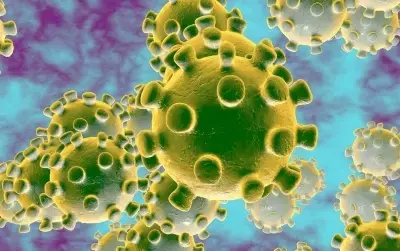- Home
- Medical news & Guidelines
- Anesthesiology
- Cardiology and CTVS
- Critical Care
- Dentistry
- Dermatology
- Diabetes and Endocrinology
- ENT
- Gastroenterology
- Medicine
- Nephrology
- Neurology
- Obstretics-Gynaecology
- Oncology
- Ophthalmology
- Orthopaedics
- Pediatrics-Neonatology
- Psychiatry
- Pulmonology
- Radiology
- Surgery
- Urology
- Laboratory Medicine
- Diet
- Nursing
- Paramedical
- Physiotherapy
- Health news
- Fact Check
- Bone Health Fact Check
- Brain Health Fact Check
- Cancer Related Fact Check
- Child Care Fact Check
- Dental and oral health fact check
- Diabetes and metabolic health fact check
- Diet and Nutrition Fact Check
- Eye and ENT Care Fact Check
- Fitness fact check
- Gut health fact check
- Heart health fact check
- Kidney health fact check
- Medical education fact check
- Men's health fact check
- Respiratory fact check
- Skin and hair care fact check
- Vaccine and Immunization fact check
- Women's health fact check
- AYUSH
- State News
- Andaman and Nicobar Islands
- Andhra Pradesh
- Arunachal Pradesh
- Assam
- Bihar
- Chandigarh
- Chattisgarh
- Dadra and Nagar Haveli
- Daman and Diu
- Delhi
- Goa
- Gujarat
- Haryana
- Himachal Pradesh
- Jammu & Kashmir
- Jharkhand
- Karnataka
- Kerala
- Ladakh
- Lakshadweep
- Madhya Pradesh
- Maharashtra
- Manipur
- Meghalaya
- Mizoram
- Nagaland
- Odisha
- Puducherry
- Punjab
- Rajasthan
- Sikkim
- Tamil Nadu
- Telangana
- Tripura
- Uttar Pradesh
- Uttrakhand
- West Bengal
- Medical Education
- Industry
60-70% population will get corona if vaccine is not developed: Johns Hopkins Professor

Jaipur" Health is one of the most important pillars of sustainable development, and India needs to spend more on healthcare infrastructure as the coronavirus crisis will have a major impact, public health strategist, Dr. David Bishai has said.
In his address at the webinar organised by Indian Institute of Health Management and Research (IIHMR), Jaipur on "Effect of COVID-19 on Indian Economy: Policy and Programmatic Implications" and attended by 722 participants, Bishai, a professor at the Bloomberg School of Public Health, Johns Hopkins University, suggested focusing on the health needs for poor.
He also raised the concern that the Covid-19 outbreak won't end until 60-70 per cent of the human population is immune to the virus, as it may take between 18 and 24 months to develop a vaccine for it.
If a vaccine is developed in next two years, it will impact Indian economy dramatically, particularly the health sector because there will be less money and the human resource available to run the existing programs will not be enough, Bishai said.
"The immediate need is to recover small business post Covid-19 by ensuring that the credit should reach them regularly from banks so that employment can be created," he said.
Dr. Narain Sinha, Professor, University of Botswana, talked about the Indian economy before Covid-19, the present situation, and the economy after Covid-19. His absolute focus was on the issue of migrant labors as they are most important for Indian economy.
"During lockdown, 92.5 per cent of labourers have lost 1 to 4 weeks of their work. Therefore Government should make immediate policies according to local demographic, social and economic fabric," he said.
Ujwal Thakar, ex-top banker, ex-CEO, Pratham India, and Board Member, Educate India, said that Covid-19 has forced the entire system to think about the biggest disaster i.e poverty.
"The tragedy that has made us realise that a very large section of daily wage earners in the country became very vulnerable in the wake of the pandemic. We need to focus on migrant labourers that they get immediate employment in their own villages which could help in boosting rural economy and sustainable livelihoods for poor," he said.
Author Tamal Bandyopadyay, Chartered Accountant, MSMEs consultant and IIM visiting faculty, Hema Krishnamurthy, IIHMR's Pro President, and Dean P. R Sodani, and IIHMR University's Faculty- Health Economics & Financing, Monika Chaudhary were others who participated in the webinar.
Medical Dialogues Bureau consists of a team of passionate medical/scientific writers, led by doctors and healthcare researchers. Our team efforts to bring you updated and timely news about the important happenings of the medical and healthcare sector. Our editorial team can be reached at editorial@medicaldialogues.in.


